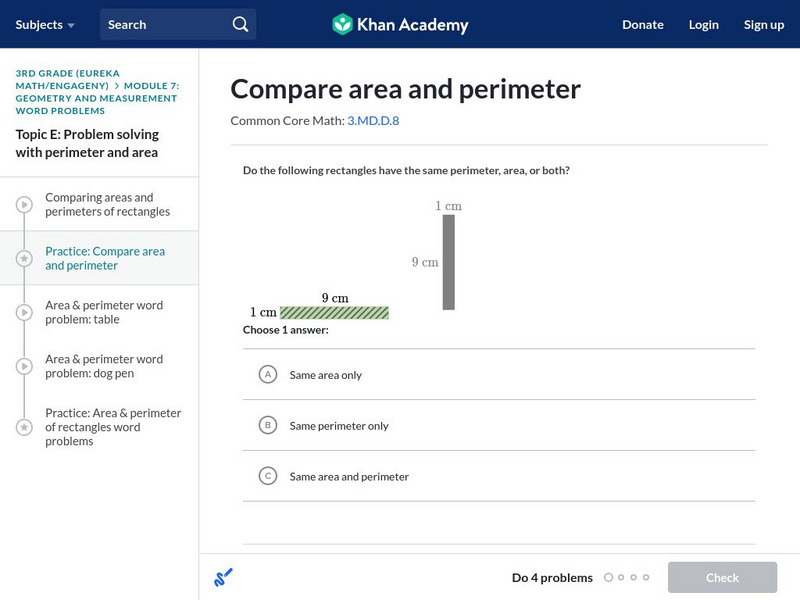Hi, what do you want to do?
National Security Agency
Backyard Building - Area and Perimeter
Turn young mathematicians into landscape architects with this four-lesson series on area and perimeter. Beginning with a basic introduction to calculating perimeter and area using non-standard units of measurement, this...
Curated OER
Fencing a Garden
Students use their knowledge of area and perimeter to design a fictitious garden fence. In this area and perimeter lesson, students design a garden fence with a set perimeter. They are given the cost per foot of the fence, and determine...
Mathematics Vision Project
Circles: A Geometric Perspective
Circles are the foundation of many geometric concepts and extensions - a point that is thoroughly driven home in this extensive unit. Fundamental properties of circles are investigated (including sector area, angle measure, and...
Partnership for Educating Colorado Students
Mayan Mathematics and Architecture
Take young scholars on a trip through history with this unit on the mathematics and architecture of the Mayan civilization. Starting with a introduction to their base twenty number system and the symbols they used, this eight-lesson unit...
Savvas Learning
Saxon Math 5/4
You'll never have to search for another worksheet again after downloading this extensive collection of Saxon math materials. With over 600 pages of example problems and skills practice exercises, this is a must-have resource...
Mathematics Vision Project
Module 5: Modeling with Geometry
Solids come in many shapes and sizes. Using geometry, scholars create two-dimensional cross-sections of various three-dimensional objects. They develop the lesson further by finding the volume of solids. The module then shifts...
Khan Academy
Khan Academy: Comparing Area and Perimeter
In this exercise, students practice comparing area and perimeter. Students receive immediate feedback and have the opportunity to watch a tutorial video, get hints, and try questions repeatedly.
Khan Academy
Khan Academy: Compare Area and Perimeter
Compare the areas and perimeters of rectangles when given a context or picture. Students receive immediate feedback and have the opportunity to try questions repeatedly, watch a video or receive hints.












